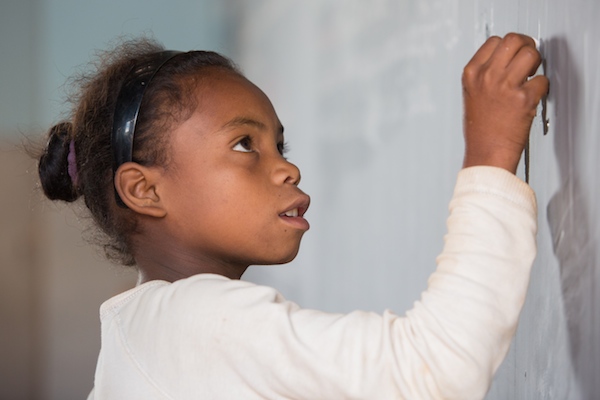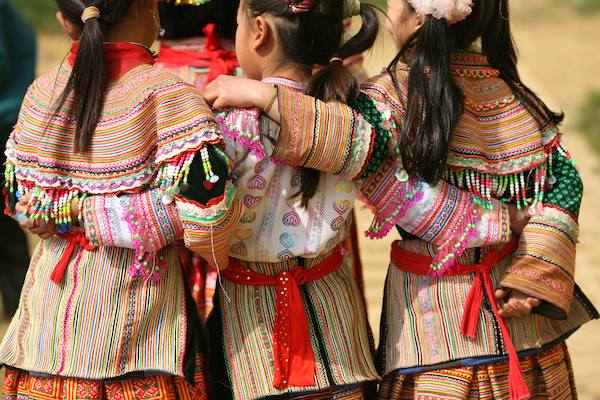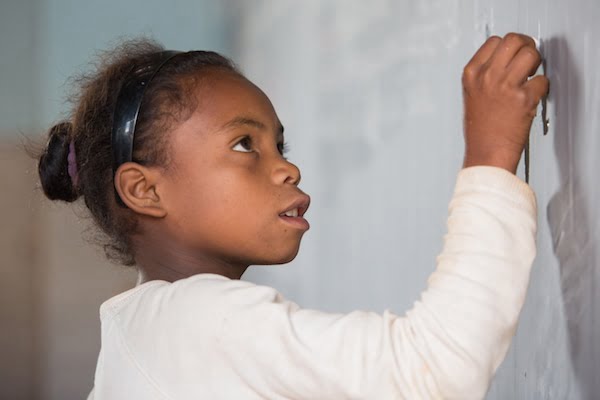In Solakhpur, Nepal, soccer is improving 16-year-old Kalita’s life through a girls’ sports program designed to delay early marriage, keep girls in school and boost their academic success.
Despite her parents’ skepticism about football and school, 16-year old Kalita is excelling at both. She’s also a leader.
When teachers came to her classroom asking if any girls were interested in playing sports, Kalita was the first to stand up. “My friends laughed,” Kalita said. “They thought that girls shouldn’t play sports.” But after Kalita had the courage to express her interest, her friends felt they could, too.
Participating in her school’s new girls’ soccer team has changed Kalita for the better. “Even my friends say that I am transformed because of sports… and my studies have improved,” she explains.

“I like studying science and history at school. My dream is to finish school and become a teacher,” says Tiavina, a 12-year old girl in a UNICEF-supported school in Madagascar.
UNICEF reports that, despite recent progress, girls continue to be denied access to education around the world. An estimated 31 million girls of primary school age, and 32 million girls of lower secondary school age, were out of school in 2013.
But access to education is a fundamental human right for all children, regardless of their gender. Moreover, ensuring that girls can go to school helps break the cycle of poverty. Research demonstrates that educated women are less likely to marry early and against their will; less likely to die in childbirth; more likely to have healthy babies; and are more likely to send their children to school.
When all children—boys and girls—have access to a quality education, it creates a ripple effect of opportunity that influences generations to come.
Learn more about the case for gender equity and increased access to education for girls here.

In a remote part of Vietnam, three girls stand arm-in-arm outside a UNICEF-supported elementary school where they learn in a safe, Child-Friendly space in their indigenous language.
Now Kalita dreams of having a profession when she grows up. “I still want to join the police force,” she says.
But she faces obstacles within her own family. “I have to focus on sports. Then the issue of marriage is not discussed much.”
[Source:- Unicef Inspired Gifts]


